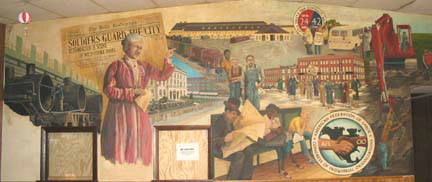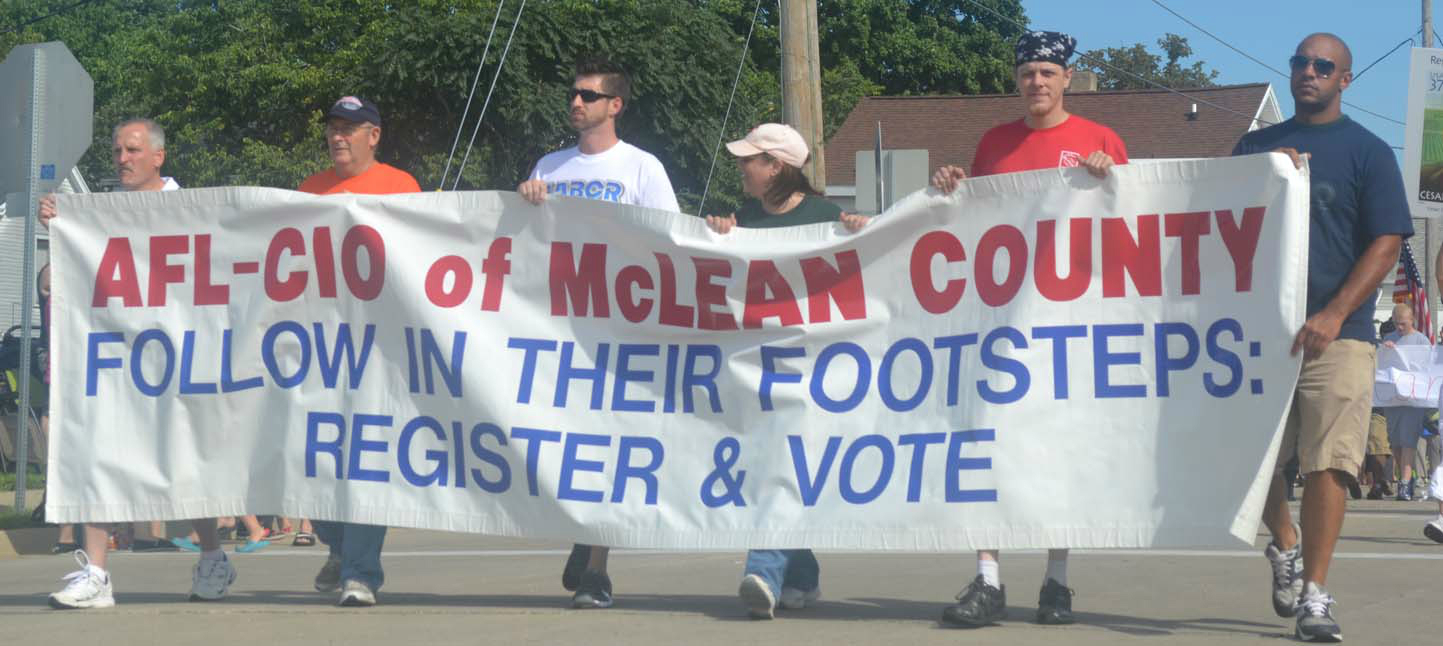|
Are we our jobs, or are we more? The eight or more hours we spent working daily often defines \ our life. Even when retired, we refer back to the job we once had.
Yet who ever looks beneath the surface to see a person, not just an occupation, an individual with dreams and aspirations?
Roaming the country, Elizabeth Gottlieb in We Are One takes that in-depth look, as individuals share their job, but also their family, their off -hours and what their union means to them.
In this wonderfully crafted book you’ll find a ballet dancer and a coal miner, a fire fighter, an undocumented garment worker, an actor, an airline pilot, an iron worker and a Laborer, Arturo Delgado of LIUNA Local 107 in Oklahoma City.
All of these 34 workers carry a union card in their pocket. Some have become union activists, some union officers and some are members well aware of how the union not only protects but also gives voice to their workplace needs and aspirations.
“Family” is the other topic that resonates. There is not only the flesh and blood family that one goes home to when the shift is done, but the “work family,” those we often spend more time with daily than we do with our own spouse, partner or children.
Whether in the spotlight as a performer or athlete, or simply hidden from the public in a mine, a construction site or a factory, we all find purpose and meaning in life through work.
Often it is a paycheck that motivates, but also it’s a sense of accomplishment through skills acquired plus having a contract to insure human rights are upheld.
There are some fascinating people in this book, like Tom, the Native American iron worker in Montana, or Audrey, the Oreo Cookie line worker in Richmond, Virginia, whose goal was to master those iconic cookies from the creme out.
Ray, the New York City upper-end apartment doorman knows his duties and is proud of his trust, as is Elsy, the Haverhill, Massachusetts garment worker who mastered the art of matching plaid fabric.
Arturo shares his story, immigrating to this country, mastering the Laborers’ craft and then being offered a position with the local union. He talks about his family and how he wants to share opportunities with them. Political awareness has grown since assuming a union activist role, including volunteering politically and reaching out to other workers to share the importance of politics.
Gottlieb has done a masterful job of letting these workers tell their own story, recounting their skills, their family pride and their union strength. It’s a worth-reading testament to the forgotten American working class and the extraordinary tasks they perform daily.
|



